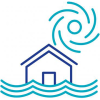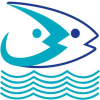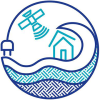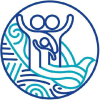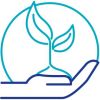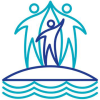Recommendations » For stakeholder groups:
Recommendations for the public
On this page
- 1. Check in with your children to assess their attitudes and identify areas where they may need specific support.
- 2. Collaborate with teachers to create and maintain a supportive learning environment across school and home.
- 3. Support local schools and education providers where needed.
- 4. Support programmes to improve student performance and experiences.
Priority area: How can the public support students’ reading?
Students need support to improve their reading performance. Parents, caregivers and other community members can play an important role in providing this support. They can look to the recommendations below, which are both general and specifical.
As a parent or caregiver, two important ways of supporting children’s reading are to read to them and to have them read to you. This helps to improve their reading ability and encourages reading beyond the classroom. It is also helpful to provide children with easy access to new books. Library membership can encourage more reading and community organisations or schools may have other ways to provide children with books. Parents and caregivers are also encouraged to talk with their children’s teachers to understand their specific reading needs.
Community members and organisations can support or organise activities that help children access books or encourage them to read. Talking with schools and community organisations can identify where these activities exist and where they are needed. These activities can include simple actions, such as community book-swapping events.
1. Check in with your children to assess their attitudes and identify areas where they may need specific support.
Many students in the region are experiencing regular challenges to their well-being; learning difficulties; difficulties in reading, writing, and numeracy; and other issues. Parents and caregivers are encouraged to check in with their children to identify any challenges they are experiencing and take action to support them.
PILNA regional findings, particularly the student section, provide insights into student experiences and highlight areas to focus on. These areas may include their performance in reading, writing, and numeracy; their well-being and how they are feeling; whether anything is troubling them; and whether they are having any learning difficulties at school.
2. Collaborate with teachers to create and maintain a supportive learning environment across school and home.
Parents and caregivers are encouraged to stay in contact with their child’s teacher to discuss their learning and their child’s time at school. This may reveal ways for parents and caregivers to support their child’s learning at home.
Some examples of how parents are caregivers might do this are to ask their child about their day and talk about any new learning, provide dedicated space and time for homework, read to them and encourage them to read.
3. Support local schools and education providers where needed.
Many teachers, school leaders and schools are experiencing challenges – the contextual findings outline these in detail. Community members are encouraged to work with these groups to identify any needs and deliver support.
Local needs are likely to be diverse. Community members could, for example, work to recycle learning materials when their children are finished with them, fundraise for resources or infrastructure improvements, contribute to school closure readiness plans; or otherwise support those who are responsible for educating their children.
4. Support programmes to improve student performance and experiences.
A variety of education stakeholders may implement programmes and initiatives to improve student performance in literacy and numeracy or other student outcomes, such as well-being. These could be national or local and could be driven by government, education groups, or community groups.
Community members are encouraged to support these efforts in whatever ways they are able, from promotion to involvement and direct contribution.
If you have any questions or comments about these recommendations, please contact SPC-EQAP.
Please also subscribe to our email updates, where we will continue to share suggestions and examples for supporting students and their learning in the Pacific region.
